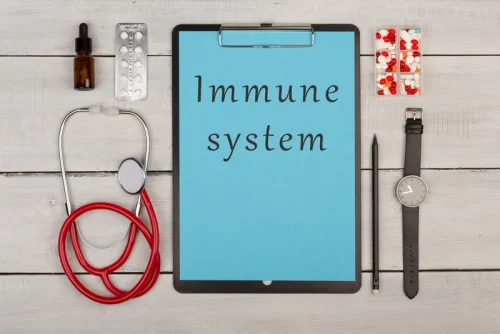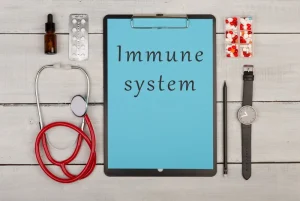
While you may see the appeal in a programme that allows for some level of drink intake, it’s crucial to consider the potential drawbacks that could come with this approach. Even moderate drinking can lead to long-term health problems such as liver disease, heart disease, and increased risk of certain cancers. Besides, alcohol affects your sleep quality and mental health too; it’s not uncommon for people who drink regularly to struggle with anxiety or depression. The path towards moderation management comes with its unique set of challenges which can include social pressure or dealing with underlying emotional issues that contribute towards excessive drinking habits. Individual factors like personal motivation, mental health status, and support system also play a key role in determining how well someone will fare within a programme. In the case of drug abusers, the theory of moderation management no longer holds as much sway but a single alcohol overdose can be fatal — of the 38 million people who admitted to drinking alcohol, 2,200 died from alcohol overdose.6 Hard, illegal substances such as heroin are far more likely to cause death than alcohol.
Models of nonabstinence psychosocial treatment for SUD
This finding is consistent with an abstinence violation effect wherein abstinence oriented participants are more likely to engage in heavy drinking following an initial lapse (Marlatt & Gordon, 1985). While CBI should theoretically reduce the impact of the abstinence violation effect by providing the opportunity to accurately process a lapse, the results presented herein did not support this effect (i.e., no goal × CBI interaction was observed). Regarding pharmacological interventions for alcohol use disorders, recent laboratory studies of naltrexone have elucidated its mechanisms of action. Importantly, one study examined the effects of naltrexone on alcohol non-abstainers and found that participants who drank regularly during the treatment period benefited more from naltrexone relative to placebo (Ray, Krull, & Leggio, 2010). Together, these findings suggest that naltrexone may be better suited to a controlled drinking approach and thus may be more effective among patients with controlled drinking goals.

Is Controlled Drinking Possible for Alcoholics?

Recognise patterns of thought that lead to excessive drinking like stress, boredom or loneliness; addressing these underlying issues is often a key part of cutting down or cutting out alcohol. Rather, when people with SUD are surveyed about reasons they are not in treatment, not being ready to stop using substances is consistently the top reason cited, even among individuals who perceive a need for treatment (SAMHSA, 2018, 2019a). Indeed, about 95% of people with SUD say they do not need SUD treatment (SAMHSA, 2019a). Even among those who do perceive a need for treatment, less than half (40%) make any effort to get it (SAMHSA, 2019a). Although reducing practical barriers to treatment is essential, evidence suggests that these barriers do not fully account for low rates of treatment utilization.
What is Controlled Drinking or Alcohol Moderation Management?
There are some addictions for which moderation management won’t be a viable option, such as eating and from time to time sexual issues. Indeed, even in such cases, moderation management with the balance requirement is a significant element for progress. The reason I could do this and the reason I could stick to just one glass on the rare days I allowed myself one was because I was determined not to damage my unborn child. I have to admit I did not enjoy my pregnancies and I think this was because I could not drink as I wanted to.
- These findings were conceptualized in the context of the abstinence violation effect, whereby an initial lapse triggers heavier within-episode drinking among abstinence-oriented individuals (Marlatt & Gordon, 1985).
- Multivariable stepwise regressions (Table2) show that younger individuals were significantly more likely to benon-abstinent, and movement to the next oldest age category reduced the odds ofnon-abstinence by an average of 27%.
- The results suggest the importance of offering interventions with various treatment goals and that clients choosing CD as part of their sustained recovery would benefit from support in this process, both from peers and from professionals.
- After five years, the majority remained abstinent and described SUD in line with the views in the 12-step programme.
Possibly, but one will benefit from being on guard for them, as they can reappear years later. Be ever vigilant, but ever hopeful and know that you can control your outcome; the choice is yours. It’s not an easy road to lasting recovery, but with the right support and resources, it can definitely be a journey worth taking. CP conceptualized the manuscript, conducted literature searches, synthesized the literature, and wrote the first draft of the manuscript. SD assisted with conceptualization of the review, and SD and KW both identified relevant literature for the review and provided critical review, commentary and revision. American Addiction Centers (AAC) is committed to delivering original, truthful, accurate, unbiased, and medically current information.
3. The harm reduction movement
Only 18 percent of 500 recovered alcohol abusers in the survey achieved remission through treatment. Thus, while it is vital to empirically test nonabstinence treatments, implementation research examining strategies to obtain buy-in from agency leadership may be just as impactful. Administrative discharge due to substance use is not a necessary practice even within abstinence-focused treatment (Futterman, Lorente, & Silverman, 2004), and is likely linked to the assumption https://ecosoberhouse.com/ that continued use indicates lack of readiness for treatment, and that abstinence is the sole marker of treatment success. In addition to shaping mainstream addiction treatment, the abstinence-only 12-Step model also had an indelible effect on the field of SUD treatment research. Most scientists who studied SUD treatment believed that abstinence was the only acceptable treatment goal until at least the 1980s (Des Jarlais, 2017).
Help for Achieving Lasting Recovery

However, a quarter or this group who achieved remission did so through nonproblem drinking. Furthermore, younger (under 40), single alcoholics were far more likely to relapse if they were abstinent at 18 months than if they were drinking without problems, even if they were highly alcohol-dependent. Thus the Rand study found a strong link between severity and outcome, but a far from ironclad one. Studies have shown that in some cultures there controlled drinking vs abstinence are a small percentage of people who can return to moderate drinking.

In other studies of private treatment, Walsh et al. (1991) found that only 23 percent of alcohol-abusing workers reported abstaining throughout a 2-year follow-up, although the figure was 37 percent for those assigned to a hospital program. According to Finney and Moos (1991), 37 percent of patients reported they were abstinent at all follow-up years 4 through 10 after treatment. Clearly, most research agrees that most alcoholism patients drink at some point following treatment. At one extreme, Vaillant (1983) found a 95 percent relapse rate among a group of alcoholics followed for 8 years after treatment at a public hospital; and over a 4-year follow-up period, the Rand Corporation found that only 7 percent of a treated alcoholic population abstained completely (Polich, Armor, & Braiker, 1981). At the other extreme, Wallace et al. (1988) reported a 57 percent continuous abstinence rate for private clinic patients who were stably married and had successfully completed detoxification and treatment—but results in this study covered only a 6-month period. MM supporters say that MM doesn’t lead to relapse, and those who have such beliefs about MM would have relapsed anyway.


Comment closed!